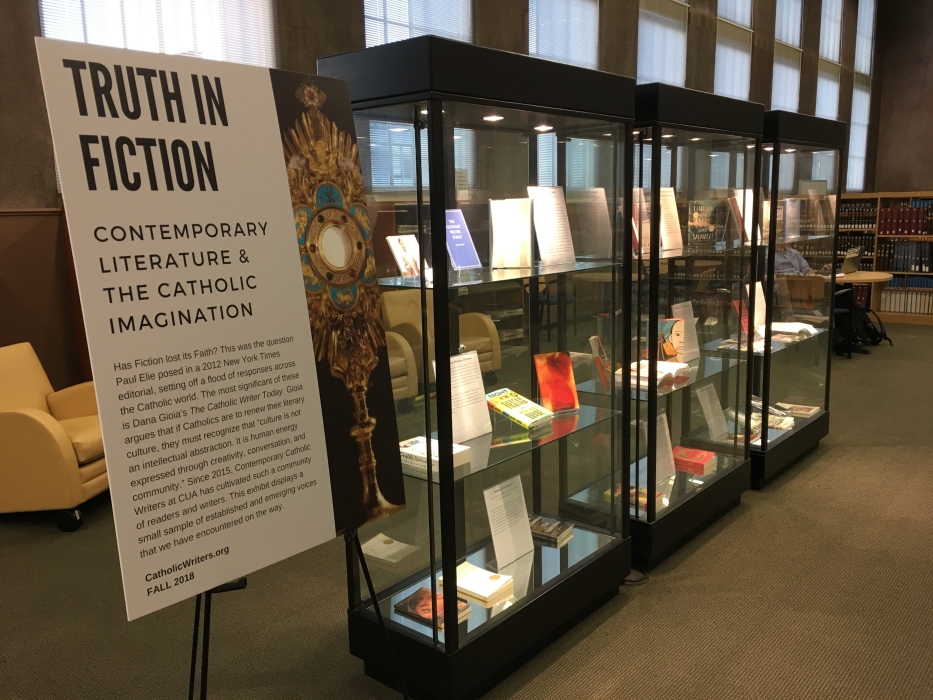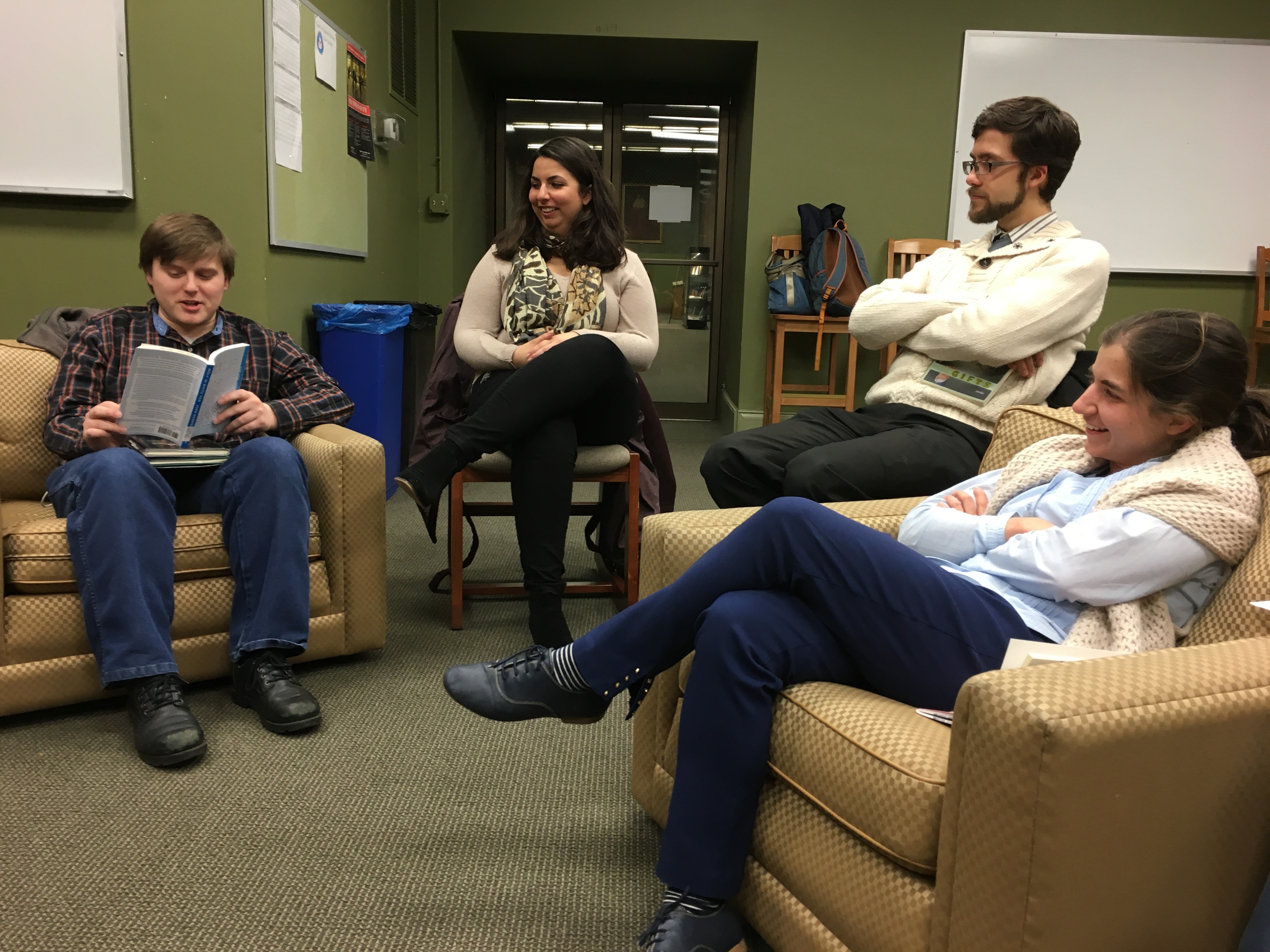
Truth in Fiction: Contemporary Literature and the Catholic Imagination
by Jessica Schnepp (current Ph.D. candidate)
This fall, the Contemporary Catholic Writers Group (CCW) collaborated with Mullen Library to mount an exhibit highlighting exemplary works by established and emerging writers encountered in our reading and speaker series over the past three years. CCW held a reception in Mullen on November 16th to celebrate the exhibit’s opening and for readers to share favorite poetry and prose passages in an informal open-mic setting.
The display explores organically recurring themes in CCW’s monthly book discussions: for example, religious life made believable in the novels of Alice McDermott, Ron Hansen, and Marilynne Robinson; the ongoing struggle of conversion, in terms religious and profane, in the fiction and non-fiction of Tobias Wolff, Mary Karr, and George Saunders; and the sacramentality of place and violence of grace in the O’Connoresque works of Jamie Quatro and Kirstin Valdez Quade. The exhibit also gives special attention to literary talent within our own English department, including poetry and edited collections by Zach Czaia, Mary Ann Miller, and Ryan Wilson.

The CCW reading series at Catholic University was founded by English graduate students in 2015 as a response to two editorials that have sparked an ongoing conversation in the Catholic and Christian literary arts world. In December 2012, Paul Elie posed a provocative question in the New York Times: “Has Fiction Lost Its Faith?” Elie painted a bleak picture, lamenting that “Christian belief figures into literary fiction in our place and time…as something between a dead language and a hangover.” One year later, Dana Gioia echoed this concern in “The Catholic Writer Today” (First Things, 2013), responding to Elie’s question by answering another: what does Catholic literature look like? Gioia gives descriptive (never proscriptive) definitions of Catholic imaginative literature and dispels the myth commonly held by believers and secular readers alike that Catholic literature equates with overtly religious subject matter: “Surprisingly little Catholic imaginative literature is explicitly religious; even less is devotional. Most of it touches on religious themes indirectly while addressing other subjects—not sacred topics but profane ones, such as love, war, family, violence, sex, mortality, money, and power. What makes the writing Catholic is that the treatment of these subjects is permeated with a particular worldview.” That worldview, more varied than it is uniform, includes “a deep sense of human imperfection and sin,” of suffering as redemptive, and of the natural world as “shimmering with signs of sacred things.”
Gioia also proposes answers to another question: how are Catholics to revive their literary culture today? Culture, he argues, “is not an intellectual abstraction. It is human energy expressed through creativity, conversation, and community.” Since 2015, Contemporary Catholic Writers at Catholic University has cultivated such a community of readers and writers. (Joshua Hren, in a talk given at Catholic U. this past September and since published in America, specifically mentions grassroots reading groups like CCW’s as key elements to sustaining and building on the Catholic literary tradition.) Over the past three years (and counting), CCW has hosted 34 book and film discussions and welcomed 21 Catholic poets, fiction writers, filmmakers, and scholars to speak to the Catholic U. community and the general public. Our aim is and always will be to seek out the best in contemporary literature that treats the religious imagination and artistic craft with equal seriousness, to discuss that literature with the critical attention it deserves, and finally to make it accessible to a broad audience. In this way, we hope to play our own small part in not only (to quote Gioia) “renovating and reoccupying our own tradition” but also “enlarging and transforming literary culture” itself.
To learn more about Contemporary Catholic Writers at Catholic U., please visit the English department webpage or visit CatholicWriters.org.
